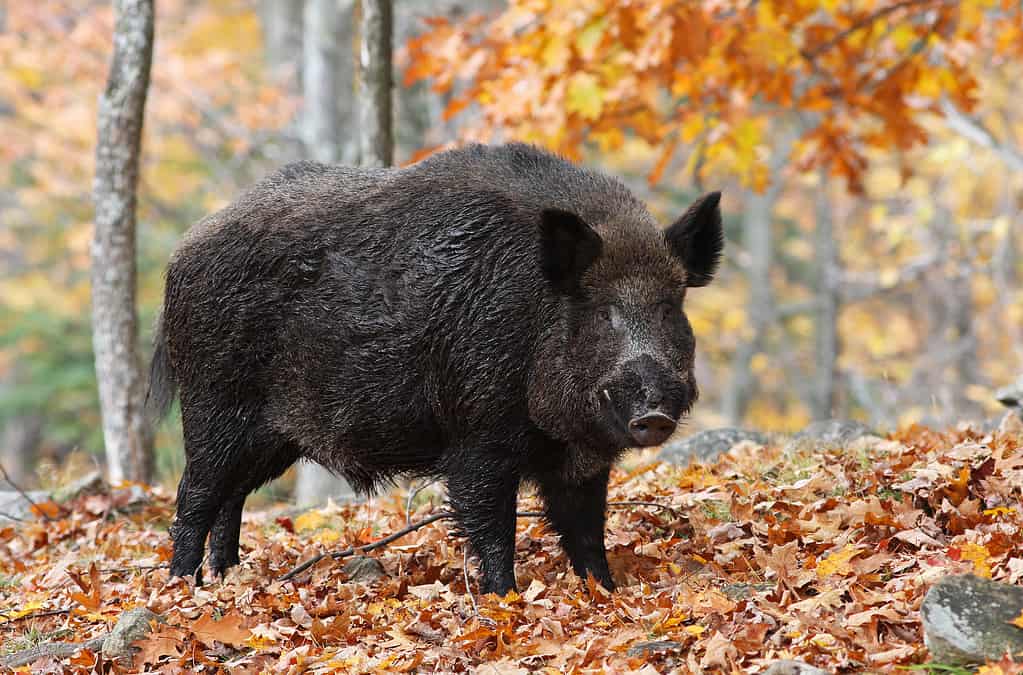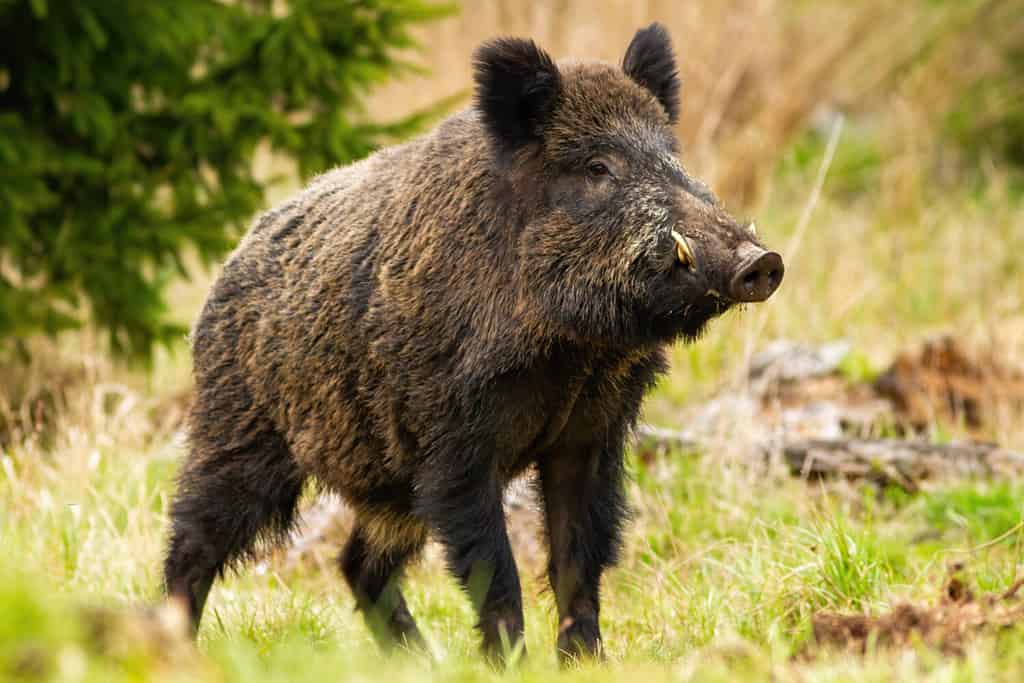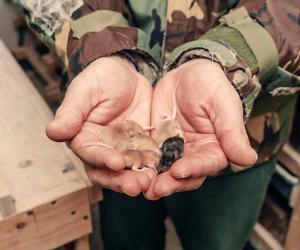The Largest Wild Hog Ever Caught in Missouri
Feral hogs are an invasive and destructive species in Missouri. Within the state, they can cause rampant destruction, while also endangering many native species that rely on a particular balance in nature to survive. However, hunting isn’t often encouraged, with the Missouri Department of Conservation instead encouraging that feral hog sightings be reported. Despite this, hunting of feral hogs does occur, and it has resulted in some monstrous catches throughout the years! Below, learn about some of the largest wild hogs in Missouri, as well as additional information about this invasive species.
The Largest Wild Hog Ever Caught in Missouri

Male wild hogs have a strong sense of smell and sharp tusks used for defense. This can make them dangerous.
©Mircea Costina/Shutterstock.com
Throughout much of the United States, hogs are classified as feral rather than wild game. Without wild game classification, there is no government tracking of size. Because of this, as well as the delicate nature of the wild hog situation in the landscape of Missouri, not much information is available about the exact size of those hunted or caught within the state. This includes no records about the official largest wild hog ever caught in Missouri.
However, wild hogs can easily reach weights over 500 pounds. One Missouri hunt, broadcasted through Pulse Factor TV, shows the successful hunt of a 200-pound boar at Stone Creek Ranch in Edgar Springs.
Why is Wild Hog Hunting Discouraged?

While hunting wild hogs is legal in the state of Missouri, the Department of Conservation discourages it due to potentially worsening the invasive species problem.
©WildMedia/Shutterstock.com
Believe it or not, many believe that the hunting of wild hogs may actually worsen the problem rather than help.
You see, wild hogs are naturally social creatures. They travel in groups known as sounders. While hunting wild hogs may remove one or two individuals from this sounder, it sends the others into panic, causing them to separate and panic. A discombobulated group of wild hogs is much more difficult to trap and capture. This is because they learn to grow weary of human scents, baits, and similar efforts. Although hunting of wild hogs is only discouraged on most lands, it is entirely prohibited by the Missouri Department of Conservation in conservation areas or areas managed by the department.
Prior to hunting any species, it is always important to check with your local offices and departments for more specific information about hunting laws.









